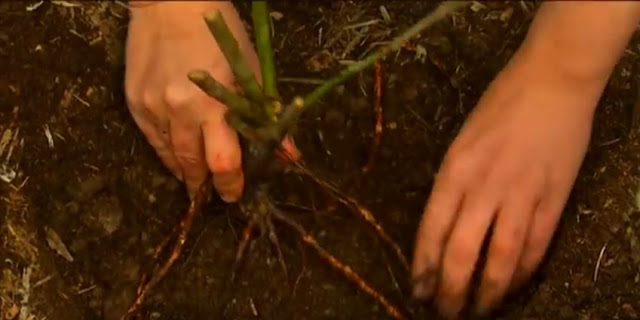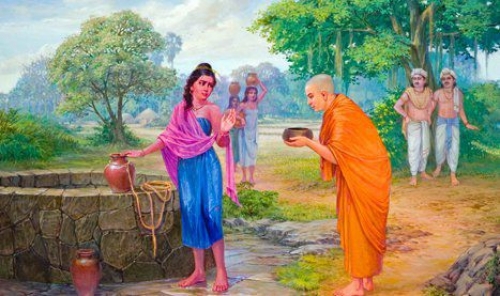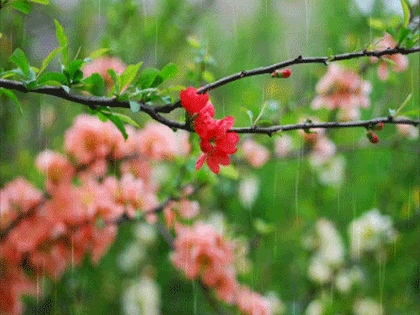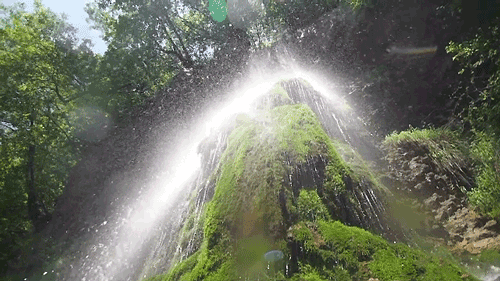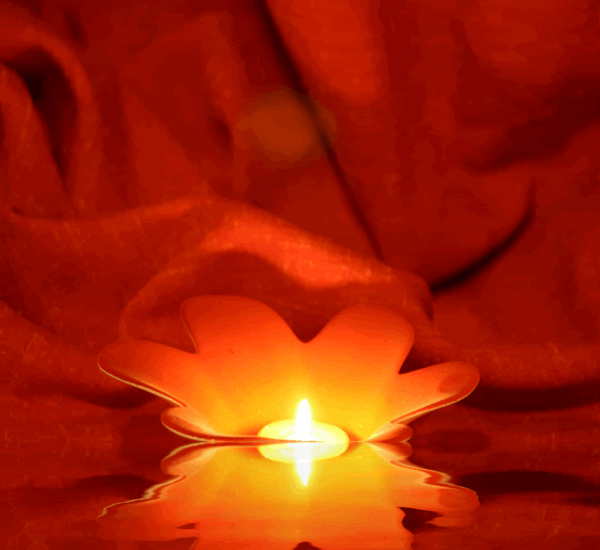-
Comment August 28, 2015
-
How to grill pineapple with cinnamon
Comment August 28, 2015 -
The greatest hindrances to compassion
Comment August 27, 2015by Tenzin Gyatso, The Fourteenth Dalai Lama
How can we start
We should begin by removing the greatest hindrances to compassion: anger and hatred. As we all know, these are extremely powerful emotions and they can overwhelm our entire mind. Nevertheless, they can be controlled. If, however, they are not, these negative emotions will plague us – with no extra effort on their part! – and impede our quest for the happiness of a loving mind.
So as a start, it is useful to investigate whether or not anger is of value. Sometimes, when we are discouraged by a difficult situation, anger does seem helpful, appearing to bring with it more energy, confidence and determination.
Here, though, we must examine our mental state carefully. While itis true that anger brings extra energy, if we explore the nature of this energy, we discover that it is blind: we cannot be sure whether its result will be positive or negative. This is because anger eclipses the best part of our brain: its rationality. So the energy of anger is almost always unreliable. It can cause an immense amount of destructive, unfortunate behavior. Moreover, if anger increases to the extreme, one becomes like a mad person, acting in ways that are as damaging to oneself as they are to others.
It is possible, however, to develop an equally forceful but far more controlled energy with which to handle difficult situations.
This controlled energy comes not only from a compassionate attitude, but also from reason and patience. These are the most powerful antidotes to anger. Unfortunately, many people misjudge these qualities as signs of weakness. I believe the opposite to be true: that they are the true signs of inner strength. Compassion is by nature gentle, peaceful and soft, but it is very powerful. It is those who easily lose their patience who are insecure and unstable. Thus, to me, the arousal of anger is a direct sign of weakness.
So, when a problem first arises, try to remain humble and maintain a sincere attitude and be concerned that the outcome is fair. Of course, others may try to take advantage of you, and if your remaining detached only encourages unjust aggression, adopt a strong stand, This, however, should be done with compassion, and if it is necessary to express your views and take strong countermeasures, do so without anger or ill-intent.
You should realize that even though your opponents appear to be harming you, in the end, their destructive activity will damage only themselves. In order to check your own selfish impulse to retaliate, you should recall your desire to practice compassion and assume responsibility for helping prevent the other person from suffering the consequences of his or her acts.Thus, because the measures you employ have been calmly chosen, they will be more effective, more accurate and more forceful. Retaliation based on the blind energy of anger seldom hits the target.
-
Fears over zoo swap
Comment August 27, 2015Charles Parkinson and Phak Seangly
The Phnom Penh Post, Thu, 27 August 2015Two elephants living at Kampot province’s notoriously grim Teuk Chhou Zoo are set to be swapped for endangered species with a zoo in Japan, despite deep concern among experts over the suitability of the trade.
Teuk Chhou owner Nhim Vanda yesterday said elephants Kiri and Seila would be exchanged for two white tigers and two zebras, with the deal set to go through early next year.
“I also asked for an additional two gorillas,” he added. “They will be placed at my zoo to look different.”
White tigers are a sub-species of Bengal tigers, which are listed as “endangered” on the IUCN Red List of Threatened Species, while gorillas are listed as “critically endangered”.
According to Vanda, who is an elected National Assembly member for the ruling Cambodian People’s Party and serves as first vice president of the Committee for Disaster Management, Prime Minister Hun Sen signed off on the deal in early 2015.
Agriculture Ministry spokesman Eang Sophalleth confirmed he had seen a copy of the decision by the government accepting the trade of the elephants.
“The government would not make such a decision without a proper assessment,” he said.Vanda said he has visited the as-yet unnamed zoo in Kagoshima prefecture, a province in the southern tip of Japan’s most southwesterly main island, Kyushu, and recently received a delegation from the zoo, which inspected Teuk Chhou and discussed where the new animals would be placed.
The Japanese Embassy in Phnom Penh had not responded to a request for comment at time of print.
Yet the prospect of Kiri and Seila being shipped to Japan has been met with dismay by those with close knowledge of the elephants.
And according to Wildlife Alliance director Nick Marx, the long-running financial difficulties faced by the zoo offer little hope that the arriving animals would be adequately cared for.
“We all know that Nhim Vanda loves his animals, but he doesn’t appear to have the funds to care for them,” Marx said yesterday.
Marx says he was previously forced to give up working with the zoo in 2011 over a severe lack of funding and practices he witnessed that were incompatible with his ethics as a conservationist, including neglect so bad some critically endangered species died.
“If the situation hasn’t changed, I wouldn’t think that it’s a great idea for gorillas, zebras and more tigers to go there,” he said. “Gorillas require very special care.”
According to a source who has witnessed first-hand the conditions in the zoo within the past month, many of the animals remain under-fed, without clean water and are kept in squalid and undersized enclosures – circumstances echoing a 2011 investigation by the Post, which labelled Teuk Chhou the “zoo of horrors”.
For Fiona Hardie, who bankrolled the enclosure in which Kiri and Seila currently live and continues to assist financially in their upkeep, the impending swap suggests a lack of appreciation from Vanda for the contribution she and others have made to the elephants’ welfare.
“These animals are native to Cambodia and should be kept in their homeland,” she said. “Now we feel we deserve something back, and for those animals to be set free”.
That freedom could come in the form of an offer from Cambodia Wildlife Sanctuary to take the pair to their 25,000-acre jungle sanctuary in Siem Riep province and rehabilitate them for possible release back into the wild.
“There are no hooks, no chains,” said Lek Chailert, who manages the facility. “We have a very big area and we can allow them to roam free.”
But for Vanda, moving the elephants to a new zoo in Japan was a win-win.
“I love my kids and my elephants. I do it for [Cambodians] to see the animals from Japan.
I want the elephants to know abroad and Japanese animals to know Cambodia,” he said, adding that he would buy new elephants from Mondulkiri to replace Kiri and Seila.
-
Why the Dharma is So Important
Comment August 27, 2015Sometimes, we have strange ideas about the Buddha. We go to him for refuge and then think that he will extend his large hand down from the sky and lift us out of samsara. Actually, the Buddha came into the world, taught the path to liberation, and then passed away.
Since we cannot go looking for him now, what should we do? We can rely on the Dharma he bequeathed to us and practice as much as possible this path to full awakening.
The Dharma is the Buddha’s representative. If we put into practice the meaning of his words, it is the same as if the Buddha were present and we could see him and hear him teaching us. This is why the Dharma is so important. ~17th Karmapa
-
Most misunderstandings
Comment August 27, 2015 -
The one who controls himself
Comment August 27, 2015 -
Bitterness — like cancer
Comment August 27, 2015 -
How to achieve happiness
Comment August 27, 2015by Tenzin Gyatso, The Fourteenth Dalai Lama
For a start, it is possible to divide every kind of happiness and suffering into two main categories: mental and physical. Of the two, it is the mind that exerts the greatest influence on most of us. Unless we are either gravely ill or deprived of basic necessities, our physical condition plays a secondary role in life. If the body is content, we virtually ignore it. The mind, however, registers every event, no matter how small. Hence we should devote our most serious efforts to bringing about mental peace.
From my own limited experience I have found that the greatest degree of inner tranquility comes from the development of love and compassion.
The more we care for the happiness of others, the greater our own sense of well-being becomes. Cultivating a close, warm-hearted feeling for others automatically puts the mind at ease. This helps remove whatever fears or insecurities we may have and gives us the strength to cope with any obstacles we encounter. It is the ultimate source of success in life.
As long as we live in this world we are bound to encounter problems. If, at such times, we lose hope and become discouraged, we diminish our ability to face difficulties. If, on the other hand, we remember that it is not just ourselves but every one who has to undergo suffering, this more realistic perspective will increase our determination and capacity to overcome troubles. Indeed, with this attitude, each new obstacle can be seen as yet another valuable opportunity to improve our mind!
Thus we can strive gradually to become more compassionate, that is we can develop both genuine sympathy for others’ suffering and the will to help remove their pain. As a result, our own serenity and inner strength will increase.
-
Our need for love
Comment August 27, 2015by Tenzin Gyatso, The Fourteenth Dalai Lama
Ultimately, the reason why love and compassion bring the greatest happiness is simply that our nature cherishes them above all else. The need for love lies at the very foundation of human existence. It results from the profound interdependence we all share with one another. However capable and skillful an individual may be, left alone, he or she will not survive. However vigorous and independent one may feel during the most prosperous periods of life, when one is sick or very young or very old, one must depend on the support of others.
Inter-dependence, of course, is a fundamental law of nature. Not only higher forms of life but also many of the smallest insects are social beings who, without any religion, law or education, survive by mutual cooperation based on an innate recognition of their interconnectedness. The most subtle level of material phenomena is also governed by interdependence. All phenomena from the planet we inhabit to the oceans, clouds, forests and flowers that surround us, arise in dependence upon subtle patterns of energy. Without their proper interaction, they dissolve and decay.
It is because our own human existence is so dependent on the help of others that our need for love lies at the very foundation of our existence. Therefore we need a genuine sense of responsibility and a sincere concern for the welfare of others.
We have to consider what we human beings really are. We are not like machine-made objects. If we are merely mechanical entities, then machines themselves could alleviate all of our sufferings and fulfill our needs.
However, since we are not solely material creatures, it is a mistake to place all our hopes for happiness on external development alone. Instead, we should consider our origins and nature to discover what we require.
Leaving aside the complex question of the creation and evolution of our universe, we can at least agree that each of us is the product of our own parents. In general, our conception took place not just in the context of sexual desire but from our parents’ decision to have a child. Such decisions are founded on responsibility and altruism – the parents compassionate commitment to care of their child until it is able to take care of itself. Thus, from the very moment of our conception, our parents’ love is directly in our creation.
Moreover, we are completely dependent upon our mothers’ care from the earliest stages of our growth. According to some scientists, a pregnant woman’s mental state, be it calm or agitated, has a direct physical effect on her unborn child.
The expression of love is also very important at the time of birth. Since the very first thing we do is suck milk from our mothers’ breast, we naturally feel close to her, and she must feel love for us in order to feed us properly; if she feels anger or resentment her milk may not flow freely.
Then there is the critical period of brain development from the time of birth up to at least the age of three or four, during which time loving physical contact is the single most important factor for the normal growth of the child. If the child is not held, hugged, cuddled, or loved, its development will be impaired and its brain will not mature properly.
Since a child cannot survive without the care of others, love is its most important nourishment. The happiness of childhood, the allaying of the child’s many fears and the healthy development of its self-confidence all depend directly upon love.
Nowadays, many children grow up in unhappy homes. If they do not receive proper affection, in later life they will rarely love their parents and, not infrequently, will find it hard to love others. This is very sad. Continue reading


